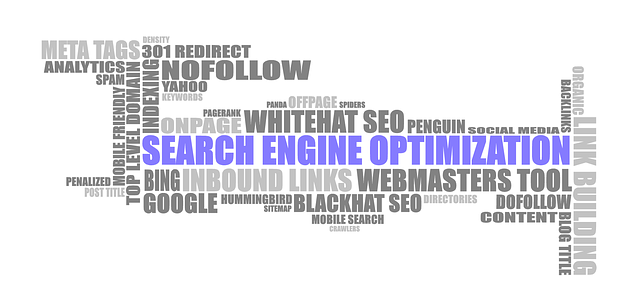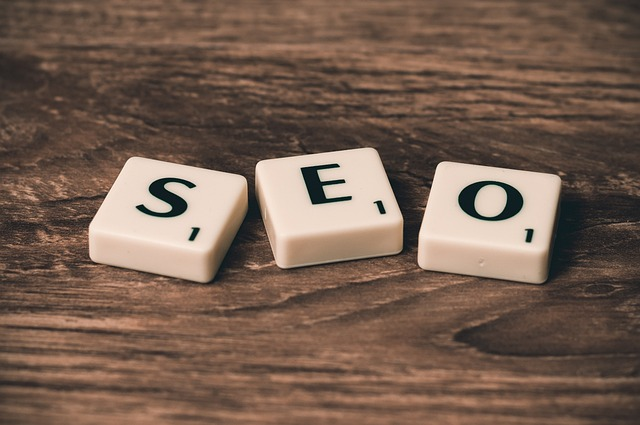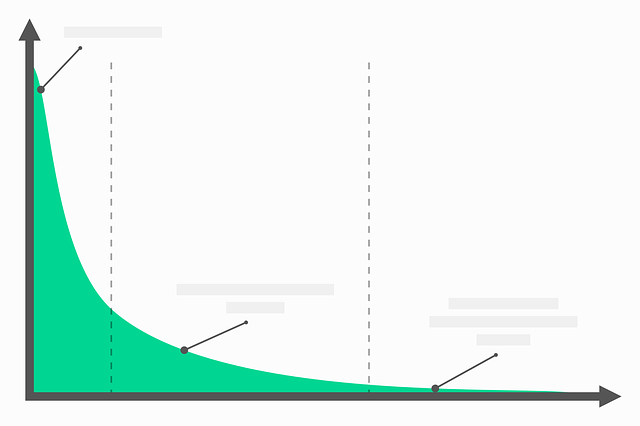Demystifying the World of SEO: The Comprehensive Guide to SEO Consultants

SEO in the digital age
The importance of SEO (Search Engine Optimization) in the digital age cannot be overstated. As the internet continues to grow and evolve, a robust online presence is essential for businesses and individuals. SEO plays a critical role in ensuring that websites rank higher in search engine results, which can directly impact their visibility, traffic, and overall success.
Here are several reasons why SEO is vital in the digital age:
Increased visibility: Optimizing your website for search engines improves its chances of appearing in the top search results. This increased visibility can lead to a higher number of visitors, potential customers, and, ultimately, sales or conversions.
Improved user experience: SEO focuses on keywords and content and emphasizes user experience. A well-optimized website loads quickly is easy to navigate, and adapts to different devices and screen sizes, making it more user-friendly and appealing to visitors.
Building credibility and trust: A high search engine ranking can be perceived as an endorsement from the search engine itself. This association can help build trust and credibility with your audience, which is essential for establishing a positive online reputation.
Cost-effective marketing: Compared to traditional advertising methods, SEO is relatively cost-effective. Once optimized, your website can continue attracting organic traffic without the need for continuous ad spending. Additionally, the traffic generated from SEO is typically more targeted, leading to better conversion rates.
Competitive advantage: In today’s digital landscape, businesses prioritizing SEO are more likely to outperform competitors who don’t. A well-optimized website draws more traffic and has a better chance of converting visitors into customers, resulting in increased revenue and growth.
Long-term results: Unlike some marketing strategies that yield short-term gains, SEO delivers long-term benefits. As your website becomes more visible and trusted by search engines, it can continue to rank higher and attract more organic traffic over time.
Adaptability: SEO is an ongoing process that requires regular updates and adjustments to stay current with search engine algorithms and best practices. This adaptability allows businesses to stay ahead of the competition and capitalize on new opportunities as they arise.
What is an SEO Consultant?

An SEO (Search Engine Optimization) consultant plays a crucial role in helping businesses and individuals improve their online visibility, attract organic traffic, and other search engines to enhance their website content overall, digital marketing presence. They are experts in search engine algorithms, digital marketing strategies, and best practices for optimizing websites.
Here are some key roles and responsibilities of an SEO consultant:

Website audit: An SEO specialist begins by conducting a comprehensive website audit to identify areas that need improvement and create the best SEO strategy. This process includes analyzing the website’s structure, content, user experience, loading speed, mobile-friendliness, and current search engine rankings.

Keyword research: A crucial aspect of SEO is identifying the right keywords that target audiences are likely to search for. SEO consultants perform extensive keyword research to find relevant, high-traffic, and low-competition keywords that can help improve a website’s search engine rankings.

On-page optimization: The consultant ensures that the website’s content, meta tags, header tags, URLs, and images are optimized for the target keywords. This also includes optimizing the site’s internal linking structure and ensuring that the content of individual web pages is well-organized and easy to navigate.

Off-page optimization: An SEO consultant works on building high-quality backlinks from relevant and authoritative websites, which is essential for improving search engine rankings. They may also advise on social media marketing, influencer outreach paid advertising, organic and search engine optimization seo, optimization, other paid search engine marketing,, and other off-page strategies to enhance the website’s online reputation and visibility.

Technical SEO: The consultant addresses any technical issues that may hinder the website’s performance in search engines, such as fixing crawl errors, implementing structured data, optimizing website speed, and ensuring mobile-friendliness.

Content strategy: An SEO consultant often helps develop a content strategy that aligns with the target audience’s needs and interests. This includes creating high-quality, engaging, and shareable content that attracts organic traffic, builds authority, and encourages user interaction.

Monitoring and reporting: SEO consultants regularly monitor a website’s performance, tracking its search engine rankings, organic traffic, conversion rates, and other relevant metrics. They provide detailed reports and insights to clients, highlighting progress and identifying areas that require further optimization.
Staying up-to-date: Search engine algorithms and best practices are constantly evolving. An SEO consultant stays informed about industry trends, algorithm updates, and emerging strategies, ensuring that their client’s websites remain competitive and compliant with the latest guidelines.
In summary, the role of an SEO consultant is to help businesses and individuals optimize their websites for search engines, increase their online visibility, and attract targeted organic traffic. They achieve this through a combination of on-page, off-page, and technical SEO strategies, as well as ongoing monitoring and adjustments to ensure long-term success.
Understanding SEO or Search Engine Optimization

What is SEO?
SEO (Search Engine Optimization) is the process of optimizing a website, web pages, or online content to improve its visibility and ranking on search engine results pages (SERPs). The goal of SEO is to increase organic (non-paid) traffic to a website or web pages by making it more accessible and appealing to search engines like Google, Bing, and Yahoo. This is achieved by implementing various on-page, off-page, and technical strategies that adhere to search engine guidelines and algorithms.
The evolution of Search Engines Optimization

SEO has evolved significantly since its inception in the 1990s, due to changes in search engine algorithms, user behavior, and technology.
Here are some key milestones in the evolution of SEO:
Early days (1990s): During this period, search engines primarily relied on keyword density and meta tags to rank websites. SEO practitioners often engaged in keyword stuffing and other manipulative tactics to achieve higher keyword rankings.
*Google search”‘s rise (late 1990s-2000s): Google emerged as the dominant search engine and introduced algorithms like PageRank, which considered the quantity and quality of backlinks to determine a website’s authority. This marked a shift toward off-page factors and a focus on quality content.
Algorithm updates (2010s): Google rolled out major updates like Panda, Penguin, and Hummingbird, targeting low-quality content, keyword stuffing, and manipulative link-building practices. These updates pushed SEO practitioners or SEO experts to prioritize user experience and high-quality content over deceptive tactics.
Mobile-first and voice search (mid-2010s): With the growing use of smartphones and voice search, Google introduced the mobile-first indexing approach, emphasizing the importance of mobile-friendliness and faster-loading websites. SEO strategy or keyword strategy adapted to accommodate the shift in user behavior.
AI and machine learning (late 2010s-present): Google has integrated AI and machine learning into its algorithms, like RankBrain or google analytics, to better understand user intent and deliver more relevant keywords or relevant search results. SEO now needs to consider not only keywords but also the context and intent behind search queries.
The SEO Consultant Job Description : A Closer Look

An SEO consultant is a professional who specializes in search engine optimization (SEO). They help businesses and website owners improve their online visibility, increase organic search traffic, and achieve higher rankings on search engine results pages (SERPs). SEO consultants are experts in optimizing local business and websites for search engines like Google, Bing, and Yahoo.
Skills and qualifications of an SEO consultant:
-
Strong understanding of SEO principles: SEO marketing consultant should have a solid grasp of on-page and off-page SEO techniques, conduct keyword research, make SEO blogs, web analytics data, seo campaigns and search engine algorithms.
-
Analytical skills: They should be able to analyze website performance, identify opportunities for improvement, and measure the effectiveness of implemented strategies.
-
Technical knowledge: SEO consultants should be familiar with website development, including HTML, CSS, and JavaScript. This helps them identify and fix technical issues that may impact a website’s SEO performance.
-
Content optimization: They should know how to optimize content for both search engines and users, ensuring that the website has relevant, high-quality content that appeals to the target audience.
-
Link building: SEO consultants should have experience in acquiring high-quality backlinks from authoritative sources, which helps improve a website’s domain authority and search rankings this one of off site seo practices.
-
Research skills: They must be skilled in conducting competitor analysis and industry research to identify trends and best practices.
-
Communication and project management skills: SEO consultants should be able to effectively communicate with clients, set expectations, and manage multiple projects simultaneously.
What’s the difference between an SEO consultant and an SEO marketing agency?

The primary differences between an SEO consultant and an SEO agency lie in their structure, the scope of services, and the level of personalization in their approach to marketing teams’ paid searches.
Structure: An SEO consultant is usually an individual expert who specializes in search engine optimization. They might work independently or as part of a larger organization. In contrast, an SEO agency is a company that comprises a team of SEO professionals, each with their own expertise and skill set.
Scope of services: An SEO consultant typically focuses on specific aspects of SEO, providing personalized services tailored to the client’s unique needs. They might offer in-depth expertise in areas such as technical SEO, content optimization, or link building. An SEO agency, on the other hand, offers a comprehensive range of SEO services, covering everything from on-page and off-page optimization to content creation, link building, and more.
Level of personalization: SEO consultants tend to provide a more customized approach to SEO, working closely with clients to develop tailored strategies and solutions. They may be more hands-on and directly involved in implementing SEO strategies. An SEO agency may offer a more standardized approach, utilizing a broader range of strategies and techniques to cater to a larger client base. However, they may also have a more extensive pool of resources and expertise to draw from, allowing them to address a wider variety of SEO challenges.
Cost and scale: Hiring an SEO consultant may be more cost-effective for smaller businesses with limited budgets, as they usually charge based on the specific services they provide. An SEO agency might have higher fees due to the breadth of their services and the size of their team. However, larger businesses or those with more complex SEO needs may benefit from the diverse resources and expertise that an agency can offer.
In summary, the main differences between an SEO consultant and an SEO agency are their structure, the scope of services they provide, the level of personalization in their approach, and the cost and scale of their services. Depending on the specific needs and budget of a a business owner, one may be more suitable than the other.
How to Choose the Right SEO Consultant

Choosing the right SEO consultant is crucial for the success of your own online marketing or business. Consider the following steps to make an informed decision:
Assessing experience and expertise:
a. Industry experience: Check if the SEO consultant has experience working with businesses similar to yours, in terms of size, niche, and target audience. This can ensure that they understand the unique challenges and opportunities in your industry.
b. Technical expertise: Make sure the consultant is well-versed in various SEO tools, and SEO techniques, including on-page and off-page optimization, keyword research, and content optimization. They should also have knowledge of website development and be able to identify and fix technical issues.
c. Staying up-to-date: SEO is a constantly evolving field, so choose a consultant in house marketing team who stays current with industry trends, search engine algorithm updates, and best practices.

Evaluating case studies and testimonials:
a. Case studies: Request case studies from the consultant to review their past work. This can provide valuable insights into their approach, the strategies they use, and the results they have achieved for their clients. Look for projects that are similar to yours to gauge their effectiveness in addressing your specific needs.
b. Testimonials and references: Client testimonials can help you understand the consultant local or seo consulting or’s in-house marketing team’s level of professionalism, communication skills, and overall client satisfaction. Ask for references and reach out to their previous clients to gather firsthand feedback on their experience working with the consultant or local seo marketing consultants.
c. Online reviews and ratings: Check for online reviews and ratings on platforms like Google, Yelp, or industry-specific websites. This can give you an idea of the consultant’s reputation and the quality of their services.
Conclusion

In conclusion, SEO is a vital component in the digital age for businesses and individuals seeking to improve their online presence, attract organic traffic, and achieve higher search engine rankings. The role of a professional SEO consultant is to provide expert guidance and tailored strategies to help clients optimize their websites for search engines and increase their visibility. When choosing the right SEO consultant, it’s essential to assess their experience, expertise, and reputation through case studies, testimonials, and online reviews.
By using proper keywords and selecting the right consultant, businesses can benefit from increased visibility in organic search engine marketing results, improved user experience, credibility, cost-effectiveness, marketing strategy, and a competitive advantage that ensures long-term success in the digital marketing landscape.








 To get started, please enter your details below
To get started, please enter your details below